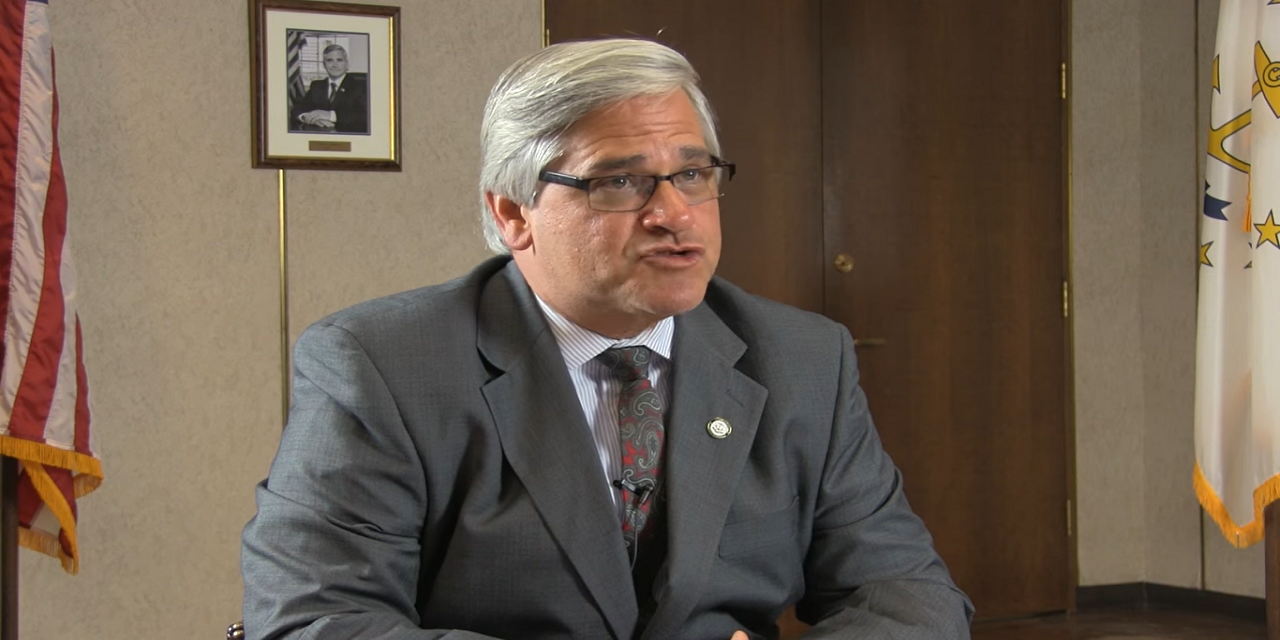PROVIDENCE, R.I. (Legal Newsline) - Rhode Island Attorney General Peter Kilmartin has imported a California law firm to sue the oil industry over climate change. He’d better hope Rhode Island courts import California’s concept of public nuisance law too, since the last time a Rhode Island AG tried this tactic, over lead paint, the state Supreme Court rejected the claim entirely.
In a lawsuit filed yesterday, Rhode Island accused ExxonMobil, BP, Shell and several other big oil companies of causing global warming by selling fossil fuels without warning the public about the potential harm. The state is represented by Sher Edling, the same law firm representing San Mateo County and several other California counties in similar lawsuits on the West Coast.
The problem facing Rhode Island and its private lawyers is the state’s highest court considered almost identical allegations against the lead paint industry a decade ago and rejected them, saying the state failed to establish one essential element of any public nuisance claim: control.
The state argued the lead paint industry, like the oil industry, knew its products could be dangerous and sold it anyway. But the Rhode Island Supreme Court said to hold companies liable for a public nuisance, they have to be in a position to stop it. Lead paint was purchased by private property owners who arguably failed to maintain it properly, actions beyond the control of the manufacturers.
In its latest lawsuit, Rhode Island hopes to somehow maneuver around that precedent, partly by adding tort claims including products liability and negligence. But the core of the case remains public nuisance, since it will be extremely hard for the state to survive summary judgment on the issue of whether gasoline is a “defective product” because it emits greenhouse gases when it burns.
Rhode Island filed its case in state, not federal, court, and even if the defendant companies remove the case to federal court, the judge will still likely consider Rhode Island law. But unlike in California, where that state’s Supreme Court upheld a ruling against lead paint manufacturers, Rhode Island isn’t likely to find its own courts sympathetic. In the lead paint decision, Rhode Island v. Lead Industries Assoc., the high court virtually ruled out the possibility of suing over the sale of a product.
“The law of public nuisance never before has been applied to products, however harmful,” the court ruled.
The court summed up Rhode Island public nuisance law with a three-part definition: A public nuisance is an unreasonable interference with a right common to the general public, by someone with control over the instrumentality causing the nuisance “when the damage occurred.”
Companies can cause a public nuisance while engaging in a legal business, the court said, such as operating a chemical dump or noisy industrial operation. But the control principle remains critical: “Control at the time the damage occurs is critical in public nuisance cases, especially because the principal remedy for the harm caused by the nuisance is abatement,” the court said.
The cities of Oakland and San Francisco also tried the gambit of suing the oil companies over a “public nuisance” with no intention of abating it and lost, in a federal court decision that will likely be cited by the defendants in Rhode Island.
In that decision, U.S. District Judge William Alsup said the cities failed to state a claim, and went on to say they couldn’t show the oil companies were solely responsible for global warming.
“Everyone has contributed to the problem of global warming and everyone will suffer the consequences – the classic scenario for a legislative or international solution,” Alsup wrote.
Perhaps AG Kilmartin is hoping Rhode Island courts will reconsider the lead paint precedent and follow California’s lead. Earlier this year, the California Supreme Court let stand a $600 million judgment against several lead paint companies based upon identical allegations as the ones Rhode Island rejected.
Virtually every other court to have considered public nuisance lawsuits against product manufacturers has ruled the other way. A similar wave of government lawsuits against gun manufacturers ended when most courts dismissed them; Congress followed up by passing a statute prohibiting courts from finding companies liable for the illegal use of their products.
New Jersey and Missouri similarly rejected lawsuits against lead paint manufacturers, using the same logic as Rhode Island. The New Jersey Supreme Court, cited in Rhode Island’s lead paint decision, says public nuisance is based on conduct, “performed in a location within the actor’s control, which has an adverse effect on a common right.” If the government sues over a nuisance, it “may only seek to abate, at the expense of the one in control of the nuisance.”
